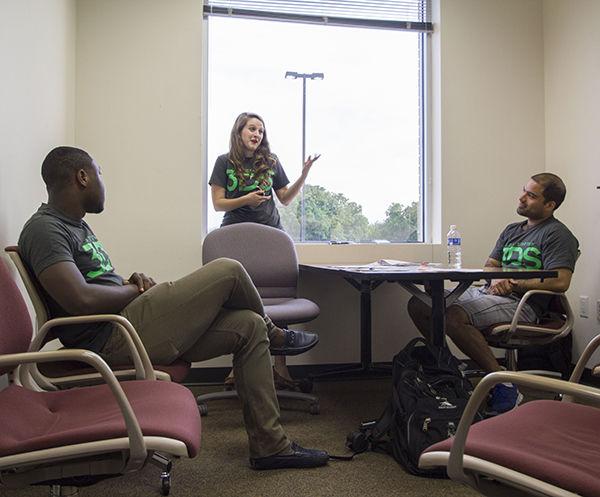Students from across campus created a business from scratch in 72 hours this past weekend through Startup Aggieland’s 3 Day Startup weekend.
Richard Lester, clinical professor and executive director of the Center for New Ventures and Entrepreneurship, said the 3-Day Startup weekend is intended to give motivated, enthusiastic students from multiple colleges the opportunity to learn about starting a business.
“My hope is that number one, educationally they understand the process of how to start up a business,” Lester said. “How do you get a team together, how do you form that team, how do you rapidly start identifying whether this startup business makes any sense or not?”
Tyler Pearce, management senior and head of the leadership team at 3-Day Startup, said each of the 30 participating students brought in business ideas at the beginning of the weekend. Through a voting process, the 30 ideas were narrowed down to six and participants were divided into teams.
Jake Boaz, business administration sophomore, said his idea, called Faux, revolved around creating a new auxiliary cable for phones.
“Basically the premise is whenever I try to connect to a music device through auxiliary with my phone, the cable never works with my phone case on, and so I constantly have to take my phone case on and off which is a really big pain for me, Boaz said. “So I want to come up with a cable that works with any phone case.”
Another idea, Seat Hop, was presented as a marketplace for sports fans looking for better game-day seats. The idea was met with encouragement from the investors reviewing the team’s proposals, and the team was encouraged to apply to continue developing the idea through Startup Aggieland.
“The whole idea though is to create enough momentum throughout this weekend to sustain a viable company past this weekend,” Pearce said.
Lester said each team received critiques at the end of the weekend from the panel investors they pitched their ideas to.
“There are no winners, and we do that intentionally,” Lester said. “If there are one or two people here that are really good at graphic arts they may help multiple teams and we try to create that incentive for them to do it.”
Luke Neese, philosophy senior and member of the leadership team, said the cooperative approach of 3DS is good because it allows the students to focus working together to develop the best idea they can.
“The idea of this event is kind of like drinking from a firehose,” Neese said. “You just get hit with so much information, and over the next few months things that you don’t even realize you picked up you begin to notice.”
Neese said 3DS set up student entrepreneurs for the future.
“What 3DS does is it gives you a system, a methodology and a direction as well as helps you learn how to do things like customer validation,” Neese said. “And that’s really going to help you in whether or not your idea is going to get good traction.”










